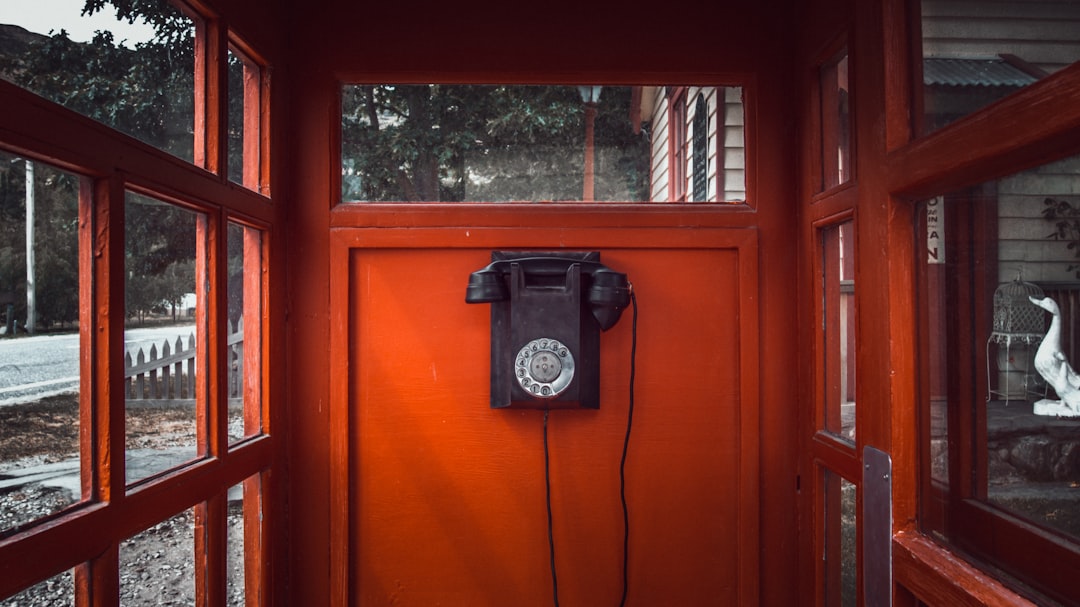Pennsylvania residents facing robocall harassment have legal protections and resources available through specialized Do Not Call lawyers or robocall attorney firms. These professionals help navigate state and federal laws like the Telephone Consumer Protection Act (TCPA), file complaints, seek damages for emotional distress, and take legal action against phone companies failing to block unauthorized calls. Registration on the National Do Not Call Registry is a first step, but hiring an expert can offer more robust solutions and peace of mind.
In today’s digital age, robocalls have evolved from a nuisance to a legitimate form of harassment, with many Pennsylvanians facing an overwhelming influx of illegal calls. This article delves into the intricate world of robocall regulations in Pennsylvania, empowering consumers with knowledge about their rights and legal defenses. We explore crucial aspects such as the Do Not Call Registry, legal actions against robocallers, and effective strategies to curb these relentless calls. For those seeking robust protection, finding a specialized Do Not Call Lawyer or Do Not Call Law Firm in Pennsylvania is essential, offering expert guidance and representation.
- Understanding Robocall Harassment in Pennsylvania
- The Do Not Call Registry: Your First Line of Defense
- Legal Rights Against Robocallers in PA
- When is a Robocall Consideration Legally Actionable?
- Choosing the Right Do Not Call Lawyer or Firm in Pennsylvania
- Navigating Legal Actions Against Robocallers
- Effective Strategies to Stop Robocalls Once and For All
- The Future of Anti-Robocall Laws and Consumer Protection
Understanding Robocall Harassment in Pennsylvania
In Pennsylvania, robocall harassment is a growing concern for consumers. Automated phone calls, often from unknown numbers, bombard residents with unsolicited marketing messages or even threatening and disturbing content. These robocalls can be particularly intrusive and distressing, especially when they persist despite registration on the Do Not Call list. A Do Not Call lawyer in Pennsylvania or a reputable Do Not Call law firm can offer much-needed assistance to combat this issue.
Such legal professionals specialize in protecting consumers’ rights and have extensive knowledge of state regulations regarding telemarketing practices. They can help individuals navigate complex legal options, including filing complaints against violating parties, seeking damages for emotional distress caused by the harassment, and even taking legal action against phone companies that fail to filter out unauthorized calls. With their expertise, a Do Not Call attorney in Pennsylvania can ensure that residents’ peace of mind is restored and that they are free from unwanted and illegal robocall interactions.
The Do Not Call Registry: Your First Line of Defense
In Pennsylvania, one effective measure to combat robocall harassment is the Do Not Call Registry. This state-mandated registry is a powerful tool that allows consumers to take control and reduce unwanted automated calls. By registering your phone number on this list, you signal to call centers and telemarketers that you do not consent to receive prerecorded or automated messages. It’s a simple yet powerful step that can significantly decrease the volume of robocalls you receive.
The Do Not Call Registry is facilitated by the Pennsylvania Office of Attorney General, ensuring its legitimacy and effectiveness. If your number is on this list, most reputable call centers will respect your request and refrain from contacting you. For those still experiencing robocall harassment despite being registered, consulting a Do Not Call lawyer Pennsylvania or a specialized robocall law firm Pennsylvania can be beneficial. These legal professionals can guide consumers through their rights and available remedies against persistent violators.
Legal Rights Against Robocallers in PA
In Pennsylvania, consumers have legal rights to protect themselves from illegal robocall harassment. If you’re receiving unwanted automated calls, you may have recourse through state and federal laws. A Do Not Call Lawyer Pennsylvania or Do Not Call Attorney Pennsylvania can help you understand your rights and take action against the culprits.
There are strict regulations in place to curb excessive robocalling, such as the Telephone Consumer Protection Act (TCPA). If a robocall law firm Pennsylvania or robocall attorneys Pennsylvania violate these laws by calling you without consent, you can file a complaint with the Federal Trade Commission (FTC) and seek legal action. This may include financial compensation for each violation, which can add up significantly, making it a powerful deterrent for scammers targeting Do Not Call lawyers Pennsylvania.
When is a Robocall Consideration Legally Actionable?
In Pennsylvania, a robocall becomes legally actionable when it violates established consumer protection laws, such as the Telephone Consumer Protection Act (TCPA). If a caller uses an automatic dialing system or prerecorded messages to make unsolicited calls with the intent to harass, abuse, or bother recipients, they may be engaging in illegal telemarketing practices. Residents of Pennsylvania who feel they have been targeted by such robocalls can take legal action against the offenders.
A Do Not Call lawyer or attorney in Pennsylvania specializing in robocall cases can help consumers navigate their rights and options. These legal professionals can advise on when a robocall crosses the line from annoying to illegal, and guide clients through the process of seeking compensation for any harm suffered as a result of the harassment. Robocall law firms in Pennsylvania are equipped to represent victims and ensure that their rights are protected under state and federal regulations.
Choosing the Right Do Not Call Lawyer or Firm in Pennsylvania
Selecting a qualified Do Not Call Lawyer or Do Not Call Law Firm in Pennsylvania is paramount when dealing with unwanted robocalls. With numerous options available, it’s crucial to find a reputable and experienced attorney who specializes in consumer protection law. Look for firms that have a proven track record of successfully representing clients against robocallers, as this ensures your case will be handled by professionals who understand the intricacies of Do Not Call regulations and legal strategies.
When choosing, consider attorneys or firms that offer a free consultation and are transparent about their fees. Ensure they stay updated on the latest robocall technologies and trends to provide effective solutions. Additionally, checking client reviews and testimonials can give insights into the quality of service and the firm’s commitment to client satisfaction. Picking the right legal representation significantly increases your chances of achieving a favorable outcome in combating robocall harassment.
Navigating Legal Actions Against Robocallers
Navigating Legal Actions Against Robocallers in Pennsylvania
If you’ve been a victim of illegal robocall harassment, it’s essential to understand your rights and options under Pennsylvania law. A Do Not Call Lawyer or attorney specializing in this area can guide you through the legal process. They can help you determine if the calls violate state or federal laws, such as the Telephone Consumer Protection Act (TCPA), which restricts automated telemarketing calls. These experts will assist in gathering evidence and documenting the harassment to build a strong case against the robocallers.
Robocall attorneys and law firms in Pennsylvania have the expertise to file lawsuits or file complaints with regulatory bodies on your behalf. They can also represent you during any negotiations or hearings related to the issue. With their knowledge of consumer protection laws, they ensure that your rights are protected and that you receive justice for the distress caused by unwanted robocalls.
Effective Strategies to Stop Robocalls Once and For All
Robocalls have become a persistent and irritating problem for many Pennsylvania residents, but there are effective strategies to combat this issue once and for all. If you’re tired of unwanted calls, it’s time to take action and protect your privacy. One powerful step is to register your number on the National Do Not Call Registry. This federal list restricts telemarketers from calling personal phone numbers, offering a significant layer of protection. However, even with this registry, some robocalls can slip through the cracks due to loopholes or malicious actors.
For robust legal solutions, connecting with a reputable Do Not Call lawyer or attorney in Pennsylvania is highly recommended. Specialized law firms like those focusing on consumer protection can provide guidance and representation. They can assist in identifying the source of the robocalls, whether it’s a single telemarketer or a widespread campaign, and take appropriate legal action. Additionally, these professionals can educate you on your rights and help implement long-lasting solutions to block similar future intrusions, ensuring your peace of mind.
The Future of Anti-Robocall Laws and Consumer Protection
As technology continues to evolve, so do the tactics employed by telemarketers and robocallers. In response, the future of anti-robocall laws will likely involve more robust regulations and stricter enforcement mechanisms. Pennsylvania’s Do Not Call Lawyer and attorney specialists are at the forefront of this battle, offering guidance and legal representation to consumers facing relentless robocalls. With advanced technologies like artificial intelligence, consumer protection advocates anticipate more sophisticated tools for identifying and blocking unauthorized calls.
Do Not Call law firms in Pennsylvania are prepared to adapt to these changes, providing clients with comprehensive legal strategies to combat robocall harassment. By staying ahead of legislative updates and leveraging innovative solutions, these robocall attorneys ensure that consumers’ rights are protected in an increasingly digital world. Consumers can take comfort knowing that there are dedicated Do Not Call lawyers ready to assist them in navigating the complexities of anti-robocall legislation.






